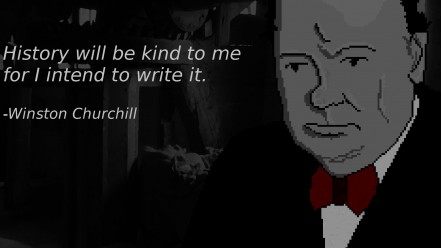You conceive of your goal.
You write it down.
You plan out your steps to achieve the goal.
You even take the first step.
Then, it seems inevitable that somewhere along the way, you get off track, you lose motivation and your focus on your bigger picture. The time, commitment, or sacrifice has come into play, the stuff that really tries you. Your slow progress toward your goal and minimal (if any) results further deter your efforts and you eventually give up.
It’s a problem many people face. Like anything new, a newly set goal is exciting and fresh. It’s fun to talk about because it’s all conceptual and idea-based in the early stages. And it’s these earliest moments when taking action is easiest to do.
But why is that?
 Why is it so easy to fall into the perpetual trap of failed goals?
Why is it so easy to fall into the perpetual trap of failed goals?
I’m currently reading a few different books, as I like to do. (My good friend Ross hates me for reading this way, but I can keep topics and story lines separate so I don’t know what the big deal is… I don’t know why I felt the need to share that.)
Anyway, I’m reading The Power Of Noticing, by Max H. Bazerman. The main goal of the book is to “…broaden the bounds of natural awareness” and it provides a blueprint as to how to do so. It’s a book that teaches you to become more aware of the tactics and motives of those around you, as a way to leverage this knowledge to your advantage in negotiations.
I felt as though this would be as good a time as any to read a book like this, seeing as how I’m coming in to the last year of my current contract. Though the book’s main focus is to show you ways in which to discover information you might not overtly see in a business setting, there is a particular concept within the book that Bazerman speaks to called the “slippery slope effect” that I feel can be applied to the attainment of personal goals.
To summarize, the “slippery slope effect” is a term Bazerman uses to describe how most cases of fraud can go unnoticed, that is of course until catastrophic failure. In the book he uses the example of Bernard Madoff and his infamous Ponzi Scheme.
The two underlying reasons Madoff’s fraud was able to reach the magnitude that it did were:
1. The slow and gradual escalation of his unethical behavior.
2. The humans natural inability to notice such gradual escalation.
As humans we have a very difficult time seeing things if we don’t know what we’re looking for.
This is especially true if what we need to see grows or moves at an extremely slow rate, or exponentially. The best way I can conceptualize our inability to process information in such a manner is to think of, and understand this question. (Try for yourself…don’t cheat)
Would you rather me give you $50,000 cash in your hands right now or give you .01 cent today, with the promise that I will double your pay every day for 30 days?
If it wasn’t for me premising that question before asking, chances are you would take the $50,000. But even now knowing that after 30 days you would receive more than the $50,000 upfront, by accepting the second form of payment, how much greater than the $50,000 do you think you would make?
80k? 200k? A Million???
Your earnings would be to the tune of $10,387,418.24 more!
Doesn’t sound believable does it? But it’s true. If you took the second option you would make $10,737,418 and 24 cents by the 30th day, but it would be 23 days before you would break the $50,000 mark. Give it a try for yourself on your calculator, start at .01 and press x2 thirty times. This will allow you to visualize the growth.
Here’s a video of this same effect in the form of our natural resources:
Both the slippery slope effect as described by Bazerman and the natural resources explained by Dr. David Suzuki in the video above are used to describe failure, but I feel as though you can use this concept and apply it to success and the attainment of your goals.
Our typical idea of reaching our goals can be so limited. Based on our view of others from the outside, we tend to make the mistake of thinking that success is instantaneous, or the result of luck. But as you can see from the models above, success (or failure) is exponential. An eventuality.
A small amount of effort exerted over an extended period of time can bring to fruition massive results. For better or for worse.
For most people and in most cases, it is for worse. Which is the very reason people find it so difficult to reach their goals. Unfortunately for us, the value which is unknown is time, the time it will take to achieve our goal.
The time unknown is what depletes our motivation and our overall ability to remain focused on the bigger picture. Because of this, we begin the accumulation of small negative efforts, which add up, contributing to not achieving what we actually want.
This comes to being in statements like “I’ll only skip today”, or “This time doesn’t really matter”, and the many other things we tell ourselves to justify our actions. What we need to see and understand is that THESE LITTLE THINGS MATTER. This one time matters…
Starting at 1 penny can seem so far away from 10 Million. 3% can seem a lifetime away from 100%.
Just as losing 30 lbs, starting a new career, improving your current circumstances, starting a business, breaking out of your comfort zone, or (insert goal here) can seem an impossible feat.
Consistency, no matter how small, is key to your eventual success or failure. The best way to maintain the consistency that helps you reach your goals is by developing positive habits and focusing on ‘why?’.
It can be easy to forget, once the going gets tough, WHY you set the goal, and aspired to do that one thing you wanted to do in the first place.

Take the time to remember your ‘why?’ and what prompted your dream in the first place.
When your motivation wanes, and obstacles present themselves, one of the keys to achieving your goals is remembering why you set them in the first place. Focus on the feeling you felt that spawned the desire to go out and change something. Put it into the larger context of your overall happiness and how this goal will help you achieve that.
Remember your ‘why?’ and living your ‘how?’ will come much easier.




 Motivation; actors are constantly asking what theirs is, musicians have used it as the title to songs and albums. It is the burning question behind any goal, project, or endeavor.
Motivation; actors are constantly asking what theirs is, musicians have used it as the title to songs and albums. It is the burning question behind any goal, project, or endeavor.



1 comment
Many people feel that they work hard but do not get anywhere. A reason for this could be that they haven’t set some time to think about what they really want from life, and haven’t set any formal goals. Goal setting is a powerful process for one to think about their future, and for motivating oneself to turn their vision into reality. The point in setting goals is to choose where you want to go in life. By knowing exactly what you want to achieve, you know exactly what you need to concentrate on.